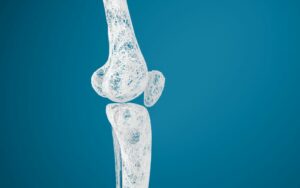Menopause, breast lumps, osteoporosis and UTI symptoms – Dr Raj Arora shares her practical guide to 6 everyday women’s health concerns
Increasingly doctors and scientists are beginning to recognize the differences between the health needs and concerns of men and women.
Biologically our genetic makeup can dictate risk and predisposition to certain health conditions.
Dr Raj Arora is a GP, the founder of @thefacebible and one of the UK’s leading medical educators. Her passion lies in mental health awareness, women’s health and skin care.
As a female GP, Dr Raj Arora has always been passionate about educating other women with regarding to women’s health and using her Instagram platform @dr_rajarora to educate, inform, empower and inspire her followers. Here is a practical guide to help navigate some common women’s health concerns.
Here is a practical guide to help navigate some common women’s health concerns…
Health concern #1 Heart Disease
Coronary heart disease kills more than twice as many women as breast cancer in the UK in every year. In 2019 it was the single biggest cause of death in women worldwide.
Heart attacks can present with chest pain and other more common symptoms in women such as, nausea/vomiting, dizziness, a light upper back pressure.
As women get older it is important to recognize the risk factors of heart disease
Symptoms are normally more subtle in women, therefore women are often more likely to dismiss symptoms of a heart attack as heartburn or ignore them all together – leading to poorer outcomes.
As women get older it is important to recognize the risk factors of heart disease and to try and reduce risk:
- High blood pressure
- High Cholesterol
- Diabetes
- Smoking
- Overweight
- Reduced Physical activity
Focus on a balanced diet, regular exercise, and quit smoking. Also if you have a family hx of heart disease – get yourself checked regularly.
Women over 40 can visit their GP/nurse for a well woman check and this will include cardiovascular risk. It is important to check blood pressure and cholesterol/blood glucose levels.
READ MORE: From blood pressure to cholesterol – 3 reasons you might have a blood test
Health Concern #2 Breast Lumps
Breast cancer is the most common type of cancer in women in the UK, but if detected early, there’s a good chance of recovery. It is important to recognize that breast lumps are very common and all breast lumps do not equal cancer.
Every women’s breasts are different in terms of size, shape and consistency. One breast may also be larger than the other.
It’s important to be aware of the risk factors:
- Being overweight
- Alcohol
- Contraceptive pill
- HRT
- Being inactive
It’s also important to regularly examine your breasts. Look at each breast and armpit, using the flat of your hand, feel each breast and armpit up to the collarbone, look for any skin changes, nipple inversion and nipple discharge/bleeding.
The NHS Breast Screening Programme has produced a 5-point plan for being breast aware:
- Know what’s normal for you
- Look at your breasts and feel them
- Know what changes to look for
- Report any changes to a GP without delay
- Attend routine screening if you’re aged 50 to 70
If you are concerned about a lump or if you have breast pain/ache – see your GP urgently.
READ MORE: Experts reveal 5 healthy supplements you probably don’t know about but totally should
Health Concern #3 Osteoporosis
Osteoporosis is a health condition that weakens bones and makes them more fragile and susceptible to breaking. It affects one in two women over 50.
Women lose bone rapidly in the first few years after the menopause and symptoms can include: a stooped posture, back pain, loss of height over time and bone fractures occurring much more easily than expected.
Women lose bone rapidly in the first few years after the menopause
It is important to recognize risk factors:
- Family history
- Low weight BMI<19
- Long term use of steroids
- Alcohol excess
- Smoking
- Inactivity
- Rheumatoid arthritis
- Dietary changes – low calcium
- Hormone changes – menopause/early menopause
- Hysterectomy
- Thyroid disorders
You can help prevent osteoporosis by carrying out regular weight bearing exercises/resistance exercises as well as muscle strengthening exercises.
It is important to have a balanced healthy diet and to focus on calcium rich foods to ensure recommended daily intake of 700mg calcium.
Treatment can include HRT, bone strengthening medications and supplements
Vitamin D is also key in the diet to help absorb calcium. It can be difficult to get enough Vitamin D from food sources alone so consider a daily supplement of 10mcg.
Calcium rich foods include:
- Dairy products
- Leafy greens
- Dried Fruit
- Tofu
Other practical tips suggest that you stop smoking, reduce alcohol and also get some sun (to boost your vitamin D).
If you think you may have osteoporosis caused by menopause or hormone changes, see your doctor to consider Hormone Replacement Therapy (HRT).
If you have symptoms or have risk factors of osteoporosis, it is important to see your GP and to get an early diagnosis via a DEXA scan. Treatment can include HRT, bone strengthening medications and supplements.
READ MORE: Are you at risk of osteoporosis? 3 ways to keep your bones healthy
Health Concern #4 HPV & Cervical Cancer
There are more than 30 types of sexually transmitted infections. One of the most common is the Human Pappiloma Virus and can increase risk of cervical cancer.
HPV can be prevented with the HPV vaccine. Cervical cancer is a cancer that is found anywhere in the cervix – the opening between the vagina and the womb.
There are around 850 deaths from cervical cancer in the UK every year. That’s more than two people every day.
Risk factors:
- HPV
- Aged under 45
- First pregnancy at young age
- Having many sexual partners
- Weakened immune system – HIV/AIDS
- Smoking
- Long term use of Contraceptive pill
It is important to recognize that the national cervical screening programme – the ‘Smear test’, can help to detect cancerous cell changes early.
It is important to attend the smear test, many women feel embarrassed or uncomfortable to attend the smear. It is also important to speak to your GP or nurse, we are highly experienced in carrying out smear tests and can answer any questions about the process that you may have.
READ MORE: A gynaecologist’s guide to abnormal vaginal discharge
Health Concern #5 Menopause
Menopause is when your periods stop due to low hormone (oestrogen) levels. This usually happens between ages of 45 to 55 and symptoms can last for an average of four to eight years. Perimenopause is when symptoms start before your periods stop.
Symptoms can include: low mood, brain fog, anxiety, palpitations, poor sleep, mood swings, lack of libido and hot flushes.
If you are experiencing any symptoms of perimenopause/menopause it is important to see your GP and to consider treatment (HRT) to help replace the declining oestrogen hormone. This can be prescribed by your doctor.
HRT can come in the form of gel, patches, spray, tablets and implants
HRT may not be suitable for everyone but doctors will run through risks and benefits with you. HRT can come in the form of gel, patches, spray, tablets and implants. If you are not suitable for HRT there are other treatments that can be offered.
Menopause and perimenopause can have a huge impact on a woman’s life both at home and at work. This should not be underestimated.
- Lifestyle changes can be made to help alleviate symptoms, such as:
- Healthy balanced diet
- Exercise regularly
- Calcium rich diet to reduce risk of osteoporosis
- Sleep routines are key
- Start mindfulness techniques – meditation, yoga
- Talk to friends/family for support
For further information on each of these lifestyle changes and other in depth information on all things menopause, download Healthista’s Menopause Pack.
The Healthista Menopause Pack is a fully comprehensive online video workshop, led by Dr Dawn Harper from Channel 4’s Embarrassing Bodies.
With expert advice and information from seven credible menopause industry experts, we hope that this online resource will help women navigate common health and wellness changes and challenges they may experience before, after and during the menopause.
Health Concern #6 Urinary Tract Infections (UTI’s)
Urinary Tract Infections (UTI’s) are infections that affect the bladder, kidneys and tubes connecting them. They are more common in women as the urethra (tube through which urine leaves the body) is shorter than men.
This means that bacteria can travel into the bladder easily. Some women suffer from recurrent UTI symptoms or ‘cystitis’ (inflammation of the bladder).
- Symptoms usually include:
- Pain when passing urine
- Need to pass urine more frequently
- Sudden urge to pass urine
- Pain in lower tummy
- Foul smelling cloudy urine
How to prevent UTI symptoms?
- Empty your bladder fully
- Stay hydrated
- Wipe from front to back (to prevent bacteria from rectum entering urethra)
- Pass urine immediately after sex
- Avoid tight trousers/underwear
- Opt for cotton underwear over synthetic materials
- Avoid perfumed soaps/female hygiene products around the genital area.
If you have UTI symptoms, speak to you doctor, you may need a course of antibiotics to treat the infection.
READ MORE: The vaginal condition you’ve never heard of – that’s more common than thrush
Like this article? Sign up to our newsletter to get more articles like this delivered straight to your inbox.


























































